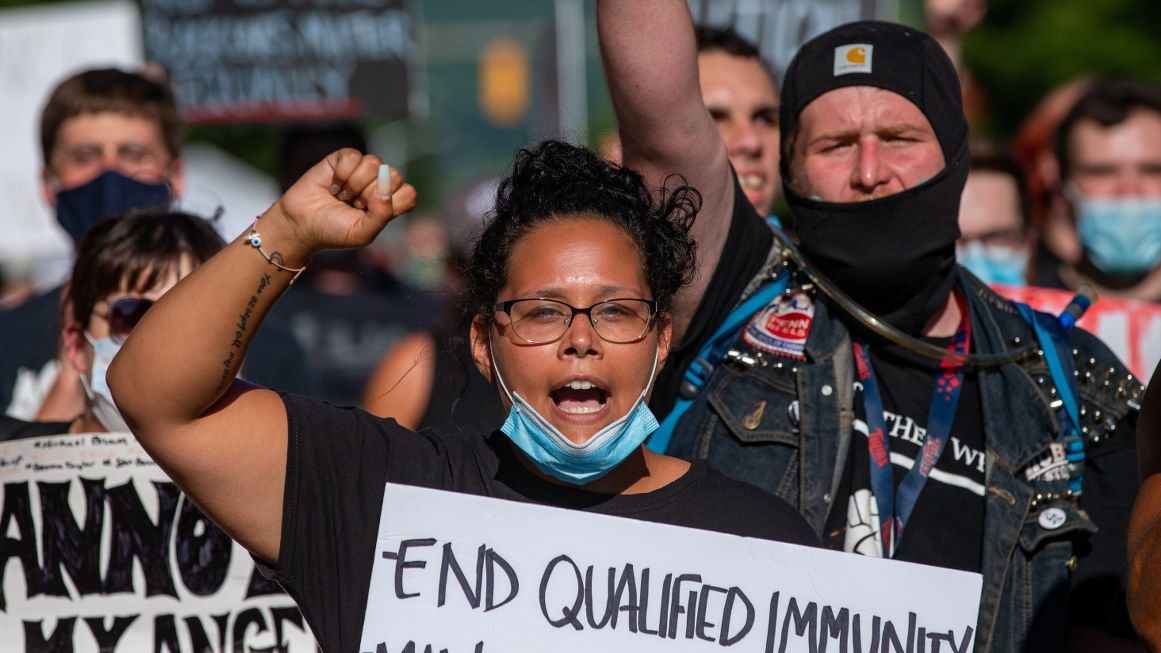

By Chief Joel F. Shults, Ed.D.
Qualified immunity is just that – qualified. In other words, it is not blanket immunity, and not immunity with impunity. In the words of the U.S. Supreme Court “The doctrine of qualified immunity protects government officials “from liability for civil damages insofar as their conduct does not violate clearly established statutory or constitutional rights of which a reasonable person would 6 PEARSON v. CALLAHAN Opinion of the Court have known.” Harlow v. Fitzgerald, 457 U. S. 800, 818 (1982). Qualified immunity balances two important interests—the need to hold public officials accountable when they exercise power irresponsibly and the need to shield officials from harassment, distraction, and liability when they perform their duties reasonably. The protection of qualified immunity applies regardless of whether the government official’s error is “a mistake of law, a mistake of fact, or a mistake based on mixed questions of law and fact.”
One should note that there are many types of immunities that apply to various government officials, not just police officers. Judges and legislators have much greater immunities for their sedentary decisions than do police officers acting under great duress.
Does qualified immunity mean that anything a police officer does they can get away with it? Certainly not. We must remember that there are two basic areas of law. One is civil, which is a wrong committed by one person against another. The other is criminal, which is a wrong committed against the collective rules of the citizenry such as a statute or ordinance. Criminal law must all be enforced within Constitutional boundaries and within established procedural safeguards.
To establish that a person has committed a crime there must be evidence that a person violated every element of that crime including the mental state of the actor. The level of proof is that which is beyond a reasonable doubt, which must be applied to every part of what defines a particular crime. A person may be taken into custody by a police officer who has a level of evidence arising to probable cause which must be sustained in order to proceed with prosecution.
A police officer who uses force unlawfully, exceeding their privilege to use reasonable force, can be criminally charged and qualified immunity has no application as a defense to a criminal charge. This kind of charge would likely be based on a violation of a state law prohibiting assault and unlawful restraint. State statutes will vary.
That same police officer, and perhaps for the same act, can also be charged with a federal crime. Because the Constitution requires searches and seizure to be reasonable, any arrest – a seizure under the Constitution – that is not reasonable violates the rights of the person arrested. The federal charge against the officer would not be the fact that force was used, but rather the right to be seized reasonably was violated.
A third way that a police officer is held accountable, in addition to the two sets of laws under which they may be prosecuted, is to be held civilly liable. A police officer can be sued in state court for any loss they might cause another person through a negligent or intentional act that violates an established standard of care. The basic formula for determining if a person can sue a police officer for damages is that there must be a duty of the officer to the other person, negligence in the execution of that duty, and a harm that is a direct result of that negligence. The proof of all these elements at trial must add up to a preponderance of evidence for a finding of liability.
A fourth way the officer can be held accountable is to be sued in federal court with a claim that the officer caused the person a loss of their civil rights. Keep in mind that all four of these actions against the officer may occur from one event at the same time. Also remember that if the officer violated a policy of their employing agency, or has no employment rights, they can be dismissed and lose their job. They may also lose their career in law enforcement if the state governing body cancels their peace officer certification or status.
At what point does qualified immunity apply? When an officer engages in a duty that must be performed, they have training, policy and procedure to follow. But no two situations are alike as policy manuals will state and courts will acknowledge. When an officer uses their judgment and the outcome is a bad one, a claim of qualified immunity may be made. If the decision that the officer has made was one that was had no clear precedent, then it is only fair to allow for human judgement errors in volatile, fast moving events. That’s all qualified immunity amounts to. There is no lack of accountability for decisions a police officer must make. Qualified immunity should remain as a just and reasonable protection.